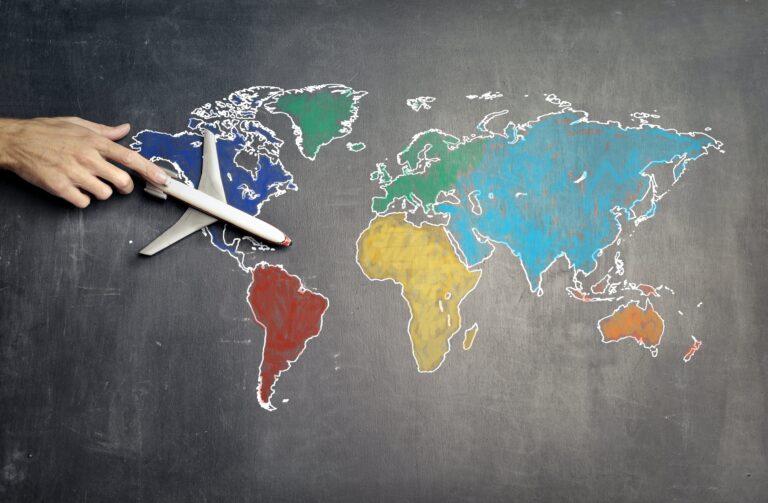International Arbitration: An Overlooked Hero in Cross-Border Dispute Resolution
Picture this: two companies from different corners of the globe, entangled in a complex contract dispute. The question arises – how do they navigate the maze of legal systems, languages, and cultural nuances to find a resolution of disputes? Enter international arbitration, the unsung hero of cross-border conflicts. This guide delves into the world of international arbitration, exploring its process, benefits, and how it serves as a beacon of resolution for companies engaged in cross-border businesses.
What is International Arbitration?
International arbitration is a private method used to resolve multilateral disputes that transcends legal systems. Unlike traditional court litigation, which involves public courtrooms and judges, arbitration offers a more flexible and confidential process.
In international arbitration, parties agree to submit their disputes to one or more arbitrators, who act as neutral third parties. These arbitrators are often experts in the relevant industry or legal field, ensuring that decisions are made by individuals with specialized knowledge. The process is governed by arbitration laws and the rules of various institutions such as the International Chamber of Commerce (ICC) or the United Nations Commission on International Trade Law (UNCITRAL). Additionally, enforcement of arbitration awards internationally is facilitated by the New York Convention, which provides a framework for recognition and enforcement in over 160 countries.
Common Types of International Arbitration
Ad Hoc Arbitration
In ad hoc arbitration, parties agree on the rules and procedures themselves, without involving an institution. They create a customized framework for the arbitration process, including selecting arbitrators, determining the place of arbitration, and establishing the procedural rules.
Institutional Arbitration
Institutional arbitration involves arbitration administered by established institutions that provide rules and guidelines for the arbitration process. Some well-known international arbitral institutions include the International Chamber of Commerce (ICC), the London Court of International Arbitration (LCIA), American Arbitration Association (AAA).
Commercial Arbitration
Commercial arbitration involves disputes resulting from commercial transactions between businesses. It can include various types, such as:
- Sales and Purchase Agreements: Disputes over contracts for the sale or purchase of goods.
- Construction Contracts: Disputes related to construction projects, such as delays, defects, or non-payment.
- Joint Ventures and Partnerships: Disputes between business partners regarding their rights and obligations.
- Intellectual Property: Disputes over intellectual property rights, such as patents, trademarks, or copyrights.
Sales and Purchase Agreements
Disputes arising from contracts for the sale or purchase of goods.
Investment Arbitration
Investment arbitration involves disputes between foreign investors and host states. It is governed by bilateral or multilateral investment treaties or investment laws. The International Centre for Settlement of Investment Disputes (ICSID) is the main institution for investor-state dispute settlement.
Construction Contracts
Disputes related to construction projects, such as delays, defects, or non-payment.
Intellectual Property
Disputes over intellectual property rights, such as patents, trademarks, or copyrights.
Maritime Arbitration
Maritime arbitration involves disputes evolving from maritime activities, such as shipping contracts, charter parties, collisions, salvage, and marine insurance. The main institution for maritime arbitration is the Society of Maritime Arbitrators (SMA), an internationally recognized leading forum for the arbitration and mediation of maritime and commercial disputes.
Online Dispute Resolution (ODR)
With the rise of e-commerce and online business, ODR has become a notable form of arbitration for resolving disputes stemming from online contracts and transactions. ODR platforms provide a virtual space for parties to present their cases and reach a resolution.

General Process of International Arbitration
International arbitration follows a structured process designed to efficiently and fairly resolve disputes between parties from different countries. While the specific details may vary based on the chosen arbitration rules and the nature of the dispute, the general process typically includes the following steps:
1. Agreement to Arbitrate
The process begins with parties agreeing to resolve their disputes through arbitration. This agreement is often included in contracts and is known as an arbitration clause.
The arbitration clause specifies details such as the rules of arbitration, the number of arbitrators, the place of arbitration, and the governing law.
2. Notice of Arbitration
When a dispute arises, one party initiates the arbitration process by sending a formal Notice of Arbitration to the other party. This notice sets out the nature of the dispute and the claims being made.
The Notice of Arbitration is typically governed by the rules of the chosen arbitration institution or agreed-upon procedures.
3. Constituting the Tribunal
After receiving the Notice of Arbitration, the parties work together to select arbitrators. The number of arbitrators may be specified in the arbitration agreement.
If the parties cannot agree on arbitrators, the arbitration institution or designated appointing authority may step in to make the appointments.
4. Preliminary Hearing (if necessary)
The tribunal may conduct a preliminary hearing to discuss procedural matters, clarify issues, and set a timeline for the arbitration case.
During this hearing, the parties may discuss the scope of the dispute, exchange documents, and agree on a procedural timetable.
5. Written Submissions and Evidence
Both parties submit written statements outlining their positions, arguments, and evidence supporting their claims.
This phase may also involve the exchange of evidence, documents, and witness statements. Parties are typically required to disclose relevant documents to the other side.
6. Hearings (if necessary)
The tribunal may hold oral hearings where both parties present their cases, witnesses testify, and experts provide opinions.
Hearings allow the tribunal to ask questions, clarify issues, and gather additional information to make an informed decision.
7. Arbitral Award
After considering the written submissions, evidence, and arguments presented, the arbitral tribunal renders a final and binding decision known as the arbitral award. The arbitral award outlines the tribunal’s findings, conclusions, and any remedies or damages awarded to the prevailing party.
The award is typically signed by the arbitrators and delivered to both parties.
8. Enforcement of the Award
Once the arbitral award is issued, it becomes binding on the parties. The winning party can then seek enforcement of the award through the courts in any jurisdiction where the assets of the losing party are located. The procedures for enforcement vary between jurisdictions but often require the winning party to provide evidence of the award and the losing party’s assets. Once the court issues the enforcement judgment, the winning party can take steps to seize or recover the assets of the losing party, such as bank accounts, real estate, or other valuable assets, to enforce the award.
9. Challenges and Appeals (if applicable)
In some cases, parties may have limited grounds to challenge the arbitral award, such as procedural irregularities or lack of jurisdiction.
Some arbitration rules allow for a limited form of appeal, known as an application for setting aside, which is typically heard by a court at the seat of arbitration.

Arbitration VS Litigation
International arbitration and litigation are two distinct means of resolving disputes, each with its own characteristics, merits, and drawbacks. The choice between arbitration and litigation is often subject to certain situations of the dispute, the preferences of the parties, and the desired outcome. Here’s a comparison between the two:
1. Nature of the Process
Arbitration
- Private: Arbitration is a private process. The proceedings are confidential, and the arbitrator’s decision is generally not made public.
- Parties’ Involvement: Parties have more control over the process, including the selection of arbitrators, location, and rules.
- Informal: Arbitration is often less formal than a court trial, with fewer strict rules of evidence and procedure.
Litigation
- Public: Court trials are generally open to the public, making the case and details of the dispute public record.
- Control: Parties have less control over the process. The court sets the schedule, rules, and procedures.
- Formal: Litigation follows strict rules of evidence and procedure, with court rules governing every step of the process.
2. Time and Efficiency
Arbitration
- Faster: Arbitration can be faster than litigation due to the flexibility in scheduling hearings and the avoidance of crowded court dockets.
- Choice of Experts: Parties can choose arbitrators with specialized knowledge, potentially leading to quicker and more informed decisions.
Litigation
- Potentially Lengthy: Court cases can be lengthy due to court schedules, pre-trial procedures, and potential appeals.
- Limited Expertise: Judges may not always have specialized knowledge of the subject matter of the dispute.
3. Cost Considerations
Arbitration
- Costs: While arbitration involves fees for arbitrators and administrative costs, it can be more cost-effective than litigation due to the streamlined process.
- Choice of Experts: Parties can select arbitrators with expertise, potentially leading to more efficient proceedings.
Litigation
- Costly: Litigation can be expensive due to court fees, attorney fees, expert witness fees, and other associated costs.
- Potential for Appeals: Appeals can further add to the costs of litigation.
4. Enforceability
Arbitration
- Global Enforcement: Awards are generally enforceable across borders under international conventions such as the New York Convention.
- Final and Binding: Arbitration awards are typically final and binding, with limited grounds for appeal.
Litigation
- Enforcement: Court judgments are also enforceable, but the process of enforcement may vary from country to country.
- Appeal Process: Court judgments can be subject to appeals, potentially prolonging the resolution process.
5. Flexibility and Customization
Arbitration
- Tailored Process: Parties can customize the arbitration process, including selecting the arbitrators, location, language, and procedural rules.
- Confidentiality: Arbitration offers a higher level of confidentiality, protecting sensitive business information.
Litigation
- Limited Flexibility: Litigation follows strict court rules and procedures, offering less flexibility for customization.
- Public Nature: Court proceedings are public, potentially exposing sensitive business details to the public.
6. Preservation of Relationships
Arbitration
- Less Adversarial: Arbitration proceedings are often less adversarial than litigation, allowing the parties to resolve disputes in a more cooperative approach.
- Preservation: The confidential and less confrontational nature of arbitration can help preserve business relationships.
Litigation
- Adversarial: Litigation can be adversarial, with each party advocating aggressively for their position.
- Strained Relationships: The confrontational nature of court proceedings can strain business relationships.

How to find a reliable arbitration lawyer?
Selecting a reliable and skilled arbitration lawyer is crucial to the success of your arbitration proceedings. Here are steps to help you find the right arbitration lawyer for your needs:
1. Identify Your Needs
Before beginning your search, identify the specific requirements of your case. Consider the nature of the dispute, the industry involved, and any specialized expertise needed.
2. Research and Referrals
- Word of Mouth: Seek recommendations from colleagues, friends, or other professionals who have experience with arbitration lawyers.
- Online Resources: Use online directories and legal platforms to search for arbitration lawyers. Websites like Martindale-Hubbell, Avvo, or Legal500 provide lawyer directories and reviews.
- Bar Associations: Check with local or international bar associations for lists of qualified arbitration lawyers.
3. Assess Experience and Expertise
Look for a lawyer with specific experience in arbitration. Consider:
- Years of Experience: A lawyer with a track record of handling arbitration cases.
- Industry Knowledge: Familiarity with the industry or subject matter of your dispute.
- Previous Cases: Review their past cases to gauge their success rate.
- Qualifications: Ensure they have relevant certifications or memberships in arbitration organizations.
4. Check Credentials
Verify the lawyer’s credentials and reputation:
- Bar Admission: Ensure the lawyer is admitted to practice in relevant jurisdictions.
- Education: Look for degrees from reputable law schools.
- Publications and Presentations: Lawyers who contribute to legal publications or speak at conferences often have a strong grasp of arbitration issues.
- Professional Recognition: Awards or recognitions in the field of arbitration.
5. Schedule Consultations
Once you’ve narrowed down your list, schedule consultations with potential arbitration lawyers. This allows you to:
- Discuss Your Case: Explain the details of your dispute and gauge the lawyer’s understanding and interest.
- Ask Questions: Inquire about their approach to arbitration, past experiences, success rates, and potential strategies.
- Assess Compatibility: Determine if you feel comfortable working with the lawyer and if there is good chemistry.
6. Evaluate Communication and Availability
Communication is key in arbitration. Consider:
- Responsiveness: A lawyer who promptly returns calls or emails.
- Accessibility: Ensure they are available to address your concerns and provide updates on your case.
- Clear Communication: Look for a lawyer who can explain legal concepts clearly and in a way you understand.
7. Consider Costs and Fees
Discuss fee structures and costs during the consultation:
- Hourly Rates vs. Flat Fees: Understand how they bill for their services.
- Retainer: Whether they require an upfront retainer.
- Cost Estimates: Ask for an estimate of total costs for your case.
8. Review Client Feedback
Look for reviews or testimonials from past clients. Online platforms and lawyer directories often have client feedback sections.
Consider reaching out to references provided by the lawyer to get firsthand experiences.
9. Ethical Considerations
Ensure the lawyer adheres to ethical standards:
- Conflict of Interest: Confirm there are no conflicts of interest that could affect their representation.
- Professional Conduct: Check disciplinary records with the bar association.
A Shortcut to Find Qualified Lawyers
Are you still feeling overwhelmed about where to find a reliable legal counsel? Expert Planet is here to simplify the process for you. We connect you with vetted legal professionals in various fields around the world. Browse our platform to explore profiles, read client reviews, and connect directly with lawyers who fit your needs. Visit Expert Planet today and find the right legal expert for your case.
FAQs
What is international arbitration and how does it differ from traditional litigation?
International arbitration is a private method of resolving disputes between parties from different countries, often used in cross-border contracts. It differs from litigation in that it is confidential, parties have more control over the process, and decisions are made by arbitrators chosen by the parties.
How long does international arbitration typically take?
The duration of international arbitration can vary widely depending on the complexity of the case, the number of issues to be resolved, and the availability of parties and arbitrators. It can range from a few months to several years.
What are the costs associated with international arbitration?
Costs of international arbitration include arbitrator fees, administrative fees of the chosen institution (if any), legal fees, expert witness fees, and other related expenses. The parties should carefully consider these costs when deciding on arbitration.
How are arbitration awards enforced internationally?
Arbitration awards are enforceable in over 160 countries under the 1958 New York Convention on the Recognition and Enforcement of Foreign Arbitral Awards. This convention provides a framework for the recognition and enforcement of international arbitration awards.
Can parties appeal an arbitral award?
Generally, the grounds for appealing an arbitral award are limited. Parties may challenge an award on grounds such as procedural irregularities, lack of jurisdiction, or public policy violations. However, the process and grounds for appeal vary depending on the arbitration rules chosen.







